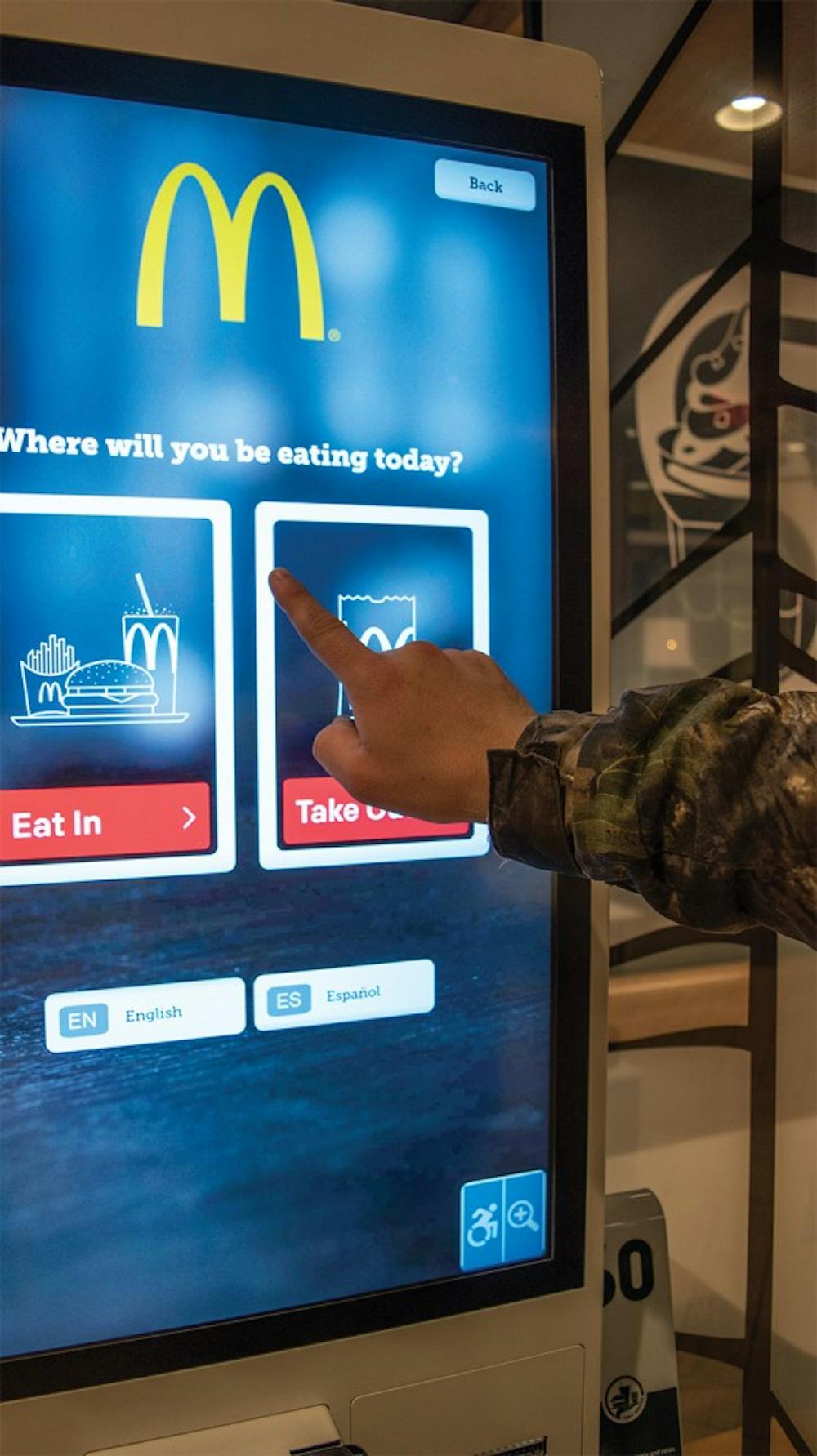With the steady advancement of technology, a recent study showed that people have become more comfortable with the integration of robots into their everyday activities. Not all Ball State students, however, feel the same.
A 2017 survey conducted by researchers, including Craig Webster, Ball State assistant professor of hospitality and food management, found people are warming up to the idea of robot workers in the tourism industry, with women reacting more positively to working with robots.
The survey asked 393 Iranian participants a series of questions to determine how consumers felt about robot workers and what tasks are and aren’t acceptable for the robots to do.
Webster said the survey accounted for many types of robots, many of them being service robots like Roombas and kiosks.
Webster said the survey findings went against the grain, because previous surveys showed women to have a less positive view on the robots than men.
“In Russia, we had mostly young people, so that study was mostly about millennials,” Webster said. “With the Iranian study, the thing that comes to mind as a unique finding was the females seem to be more positively predispositioned to working with robots than the males.”
Stanislav Ivanov, vice rector of academic affairs and research at Varnia University in Bulgaria, said the future will “definitely not be like the Terminator.”
“Especially in tourism, we will see robots in the back office,” Ivanov said. “In the kitchen, in cleaning, in housekeeping and in gardening services.”
Ivanov also said that while there has always been human and robot interaction, the interaction between the two will become more friendly and natural step by step.
“This is like if you have a pet,” Ivanov said. “So it’s like communicating with your dog, but with the robots it will be much more interactive.”
The survey said respondents as a whole would find being served by robots to be “memorable,” “exciting” and “pleasurable,” but they “had clear preferences” toward more human employees in hotels than robots.
It said many would find being served by a robot a positive experience due to prior experiences with robots and the understood advantage of robot workers.
Derin Murphy, a senior hospitality and food management major, said she would be saddened to see the hospitality industry move to automated workers.
“Most of my favorite memories involve other people,” Murphy said. “Because they do silly things, or they make something so amazing that I can’t forget it.”
She said she felt people are becoming more anti-social, and that the hospitality industry helps people overcome it.
With technologies like voice recognition and self-driving cars, robots have already started replacing certain human tasks. But the survey said, it pales in comparison to what could happen in the near future.
“The next generation of technologies that are just around the corner should offer fantastic leaps in terms of technical progress and economic efficiency. Although it is unclear what the economic externalities will be and what the social and market consequences of the incorporation of such technologies into the economy will be,” the survey said.
According to the survey, “A balance between human and robotic labor is necessary in order for the accommodation establishments to be able to serve both customer groups.”
Contact Charles Melton with comments at cwmelton@bsu.edu or on Twitter @Cmelton144.





